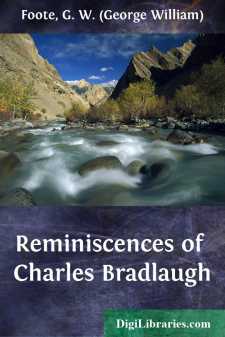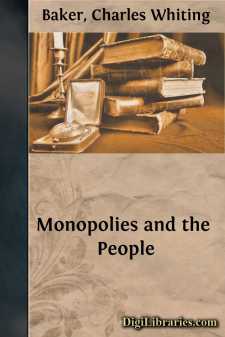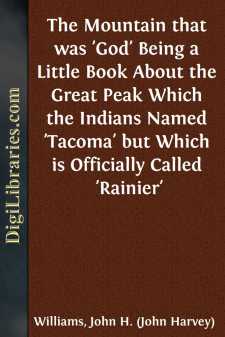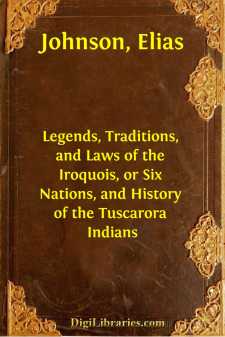Non-Classifiable
- Non-Classifiable 1768
Non-Classifiable Books
Sort by:
FOREWORD Hat-making is an art which may be acquired by any one possessing patience and ordinary ability. To make a hat for the trade is not as difficult as to make one for an individual; neither is it so high a phase of art. Many rules are given for crown-height, brim-width, and color, as being suited to different types of faces, but they are so often misleading that it seems best to consider only a...
more...
by:
Correggio
INTRODUCTION I. ON CORREGGIO'S CHARACTER AS AN ARTIST. The art of Correggio was very justly summed up by his first biographer, Vasari. After pointing out that in the matter of drawing and composition the artist would scarcely have won a reputation, the writer goes on to say: "To Correggio belongs the great praise of having attained the highest point of perfection in coloring, whether his works...
more...
INTRODUCTION. The following pages are reprinted, with some alterations and additions, from the columns of the Freethinker. They are neither methodical nor exhaustive. I had the privilege of knowing Mr. Bradlaugh more or less intimately for twenty years. I have worked with him in the Freethought movement and stood by his side on many political platforms. It seemed to me, therefore, that if I jotted...
more...
by:
James Sully
CHAPTER I. THE STUDY OF ILLUSION. Common sense, knowing nothing of fine distinctions, is wont to draw a sharp line between the region of illusion and that of sane intelligence. To be the victim of an illusion is, in the popular judgment, to be excluded from the category of rational men. The term at once calls up images of stunted figures with ill-developed brains, half-witted creatures, hardly...
more...
I.THE PROBLEM PRESENTED. The word "trust," standing for one of the noblest faculties of the heart, has always held an honorable place in our language. It is one of the strange occurrences by which languages become indelible records of great facts in the history of the world, that this word has recently acquired a new meaning, which, to the popular ear at least, is as hateful as the old meaning...
more...
I. ON MICHELANGELO'S CHARACTER AS AN ARTIST. Michelangelo's place in the world of art is altogether unique. His supremacy is acknowledged by all, but is understood by a few only. In the presence of his works none can stand unimpressed, yet few dare to claim any intimate knowledge of his art. The quality so vividly described in the Italian word terribilità is his predominant trait. He is one...
more...
Incidents in Book Making—Introductory. Book making is mixed up, more or less, with difficulties. It is sometimes disappointing; often amusing; occasionally lucrative; frequently expensive, and always interesting—at least to the maker. Of course I do not refer to that sort of book making which is connected with the too prevalent and disgraceful practice of gambling, but to the making of literary...
more...
by:
A. T. Thomson
PREFACE. In completing this work, I have to repeat my acknowledgments to those friends and correspondents to whom I expressed my obligations in the Preface to the first volume; and I have the additional pleasure of recording similar obligations from other channels. I beg to testify my gratitude to Sir William Maxwell, Bart., of Montreith, for some information regarding the Nithsdale family; which, I...
more...
FOREWORD. Every summer there is demand for illustrated literature describing the mountain variously called "Rainier" or "Tacoma." Hitherto, we have had only small collections of pictures, without text, and confined to the familiar south and southwest sides. The little book which I now offer aims to show the grandest and most accessible of our extinct volcanoes from all points of view....
more...
by:
Elias Johnson
PREFACE. To animate a kinder feeling between the white people and the Indians, established by a truer knowledge of our civil and domestic life, and of our capabilities for future elevation, is the motive for which this work is founded. The present Tuscarora Indians, the once powerful and gifted nation, after their expulsion from the South, came North, and were initiated in the confederacy of the...
more...











